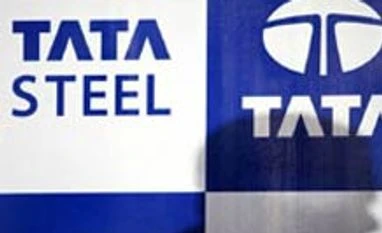Tata Steel, India's oldest steel producer, last week announced a Rs 6,500 crore goodwill impairment charge for the loss of value of operations in Europe, Canada and Mozambique. It was followed by JSW Steel, which took a Rs 105 crore hit on its US and other subsidiaries.
A write-down is a reduction in the value of assets reflecting the true nature of the business and provides a clearer picture of a company’s balance sheet to investors.
Early in the earnings season, Vedanta (earlier known as Sesa Sterlite) announced corporate India's largest Rs 20,000 crore goodwill impairment charge for the loss of value of Cairn India, its oil and gas business subsidiary, triggered by a fall in crude oil prices.
“What has changed so much suddenly, in terms of the economic situation that these impairments had to come now? The business climate has been dull for the last two years,” asked Yogesh Sharma, partner, Grant Thornton India. “These were expensive purchases and so the timing of impairment is crucial.” “This raises questions on whether the past profit and loss statements were correctly presented and also the value of assets in the past period.”
“Some of the main factors governing these businesses were commodity prices, the demand-supply situation, and raw material prices. These mentioned factors indicate that impairments could have happened in phases,” Sharma said. “Overseas, impairment is always in phases, as the balance sheet is valued properly from time to time.”
Tata Steel had made a hefty investment of $13 billion when it acquired Corus in 2007. The deal then was the largest Indian takeover of a foreign company. In the same year, JSW Steel also made a huge investment by acquiring a US plates and pipes mill for nearly $1 billion.
“Perhaps these companies hoped for a turnaround, which is why they waited,” said Munesh Khanna, partner with PricewaterhouseCoopers India.
“It is a good governance practice overall and reflects more responsibility on the company's part.”.
“Companies usually have a period decided in advance when they will carry out the impairment, and it is usually at the end of a financial year,” said Shyamak Tata, partner with Deloitte India.
"We regularly test our asset value half-yearly and since oil prices had significantly fallen in the last few months, we realised the oil and gas asset needed to be valued lower,” Vedanta’s Chief Financial Officer DD Jalan had said at the company's earnings conference call.
“There are no special tax benefits for impairments and it is purely an accounting practice,” Tata said. “We have been an advisor to one of these firms on impairment and so can tell you such impairments do not carry tax benefits. They are pure accounting exercises,” an executive in PricewaterhouseCoopers’ tax division added.
“The benefit that companies perhaps could draw is that the depreciation component of assets comes down significantly, which can help them show high profit or better future earnings,” said Sharma.
“If an impairment is not taken when needed, the asset value inflates, in turn inflating the net worth of the entity. Investors can keep track whether their company is taking impairments regularly by comparing the net worth of the company with its market capitalisation. If the latter is much lower than net worth, it is a broad indication the company needs to take an impairment,” Tata pointed out.
“In the case of metal companies investors were aware of the macroeconomic situation and so the impairments were no surprise. If the impairment comes as a surprise to investors, it means the company has been hiding something,” Khanna added.
)